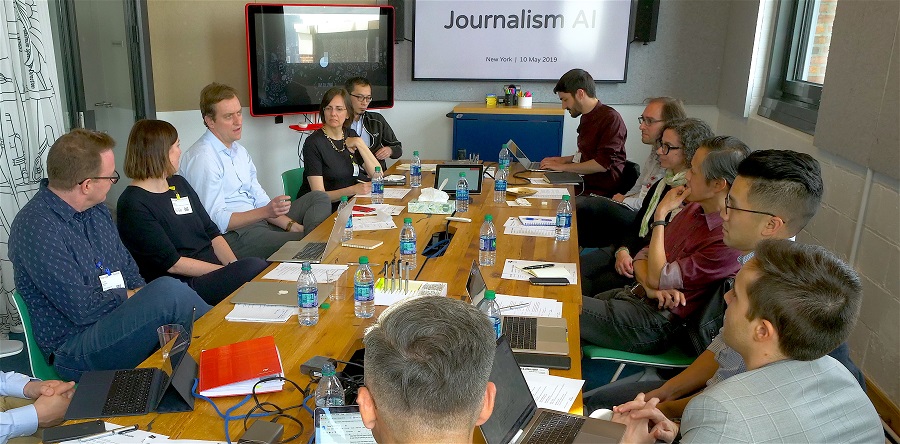Polis Intern and LSE MSc student Alex Forbess reports on the latest Polis Media Agenda Talk featuring Monique Villa
Data used in campaigning journalism is now essential to raise awareness on global corruption and human right violations, according to Monique Villa. She was formerly director of Reuters Media before being appointed to lead its charitable Thomson Reuters Foundation. She has programmes that seek to help NGOs and journalists to gather efficient facts on under-reported issues from women’s rights and climate change. While photos of such events can spark global interest, Villa said that data can spark debate and eventually have citizens demand action:
“Data can be used vividly as a photo. But if you can tell a story, backing it with data, it will be much stronger.”
Some key programmes include TrustLaw, a collaboration with the TRF and law firms to provide pro bono services to NGOs in 150 countries, and Trust Women, a conference in which gathers global corporations, lawyers and women’s right activist to take action and commit to empower women, according TRF’s website, Trust.org. With these resources provided to obtain data, then interpreted by the TRF-trained journalists into a compelling article or video segment, Villa said Thomson Reuters cannot solve global problems such as climate change, human trafficking, and slavery, instead it is there to shed light and spark debate:
“It is true that journalists can foster democracy,”
However, even with the data provided, it can still raise some scepticism on the accuracy, such as the TRF’s recent perception poll on the most dangerous transport systems for women. According to Villa, it was only possible to conduct the poll in the 15 of the world’s largest cities —New York City, London, Tokyo—but not in five of the largest, which are Cairo, Dhaka, Kinshasa, Tehran and Baghdad.
Regardless, the poll showed that New York, Tokyo and Beijing have the safest transport systems for women, whereas Bogota, Mexico City and Lima have the most dangerous ones.
This kind of use of data shows how TRF is developing global coverage with a personal touch. Information that is easy to consume and relevant to everyday lives. “We (the people) can use data to fight crime,” Villa said. “It can foster greater transparency for the governance.”
Villa says that her 12,000 TRF-trained journalists are simply messengers. Messengers who you can trust. Yes, it is about promoting the TRF brand but it can also shine a little light and make us rethink the ethics and the issues behind the data.
This article by Polis intern, Alex Forbess
Polis Media Agenda Talks are every Tuesday at 5pm and are free and open to the public – details here






